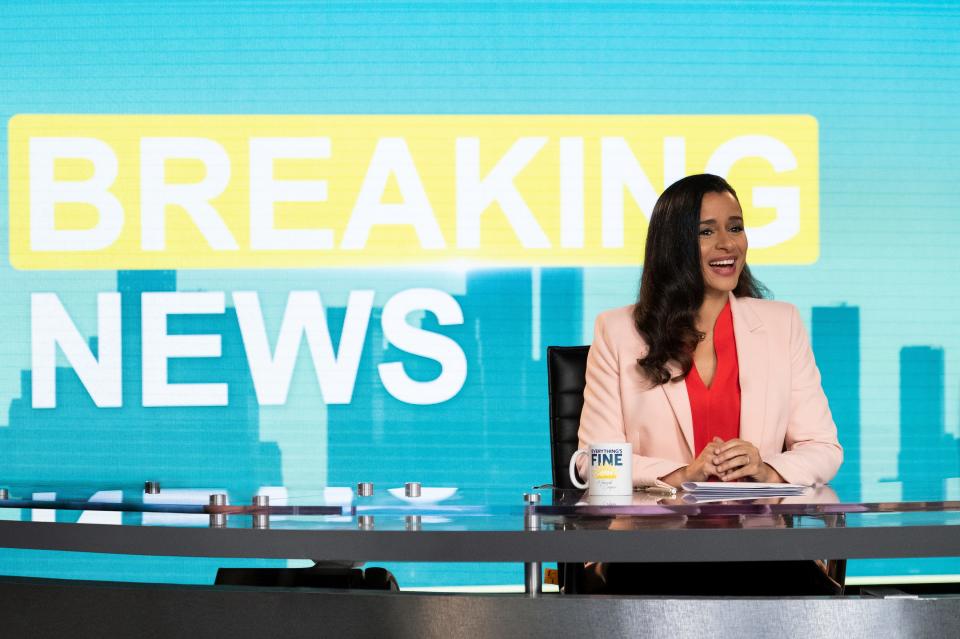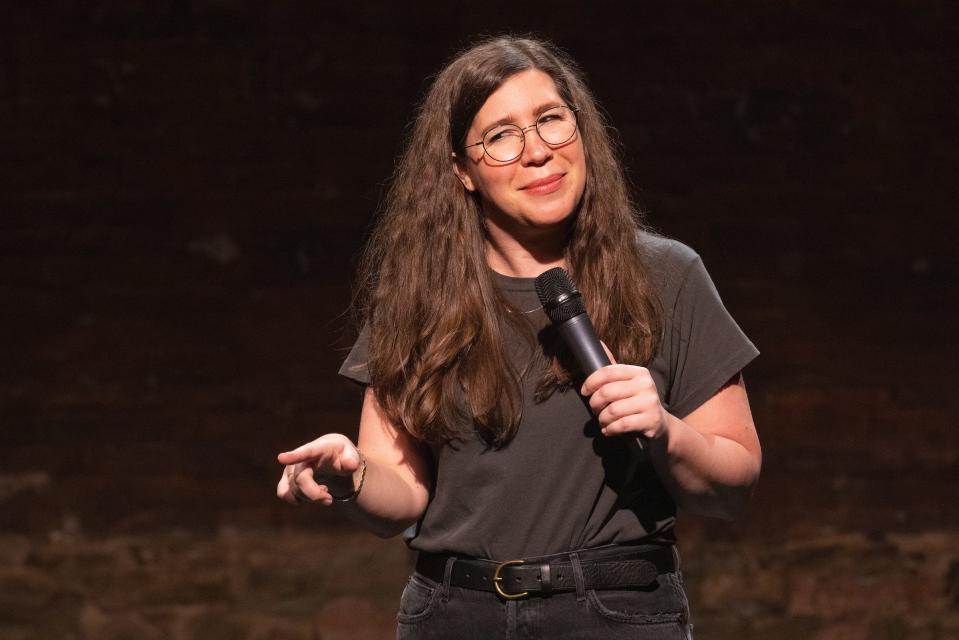Comedians like Chappelle, Gervais want to punch down. But what about the need to punch up?
This story is part of a USA TODAY series looking at the evolution of comedy and what the industry’s future looks like in a changing world.
There's something missing from the current debate about who can say what in comedy.
Comedians are in a fierce dispute about the appropriateness of "punching down" in humor. Punching down, as it's called when making jokes about people with less power than the comedian, keeps coming up as high-profile comedians aim their humor at trans people and other marginalized groups, often at their expense.
Some comics, like Dave Chappelle or Ricky Gervais, reserve the right to make jokes about anyone (Gervais even charmingly joked about literally punching down and hitting a toddler in his latest Netflix special, "SuperNature"). Both have faced intense criticism for punching down at those people with offensive, harmful jokes.
It's a conversation that's likely to continue, but in the discourse about whom comedians are allowed to make fun of and how, what's lost is a discussion of one of the great traditions of American comedy: punching up.
"There's something inherently much more powerful about comedy and satire when you're using it to point out something about the people in power that needs to be pointed out," says comedian Sarah Cooper, who rose to fame in 2020 for social media videos parodying then-President Donald Trump. "If you're trying to point out something about people who don't actually have a lot of power, I don't find a lot of gratification in that."

From Lenny Bruce to George Carlin to Richard Pryor, the legends of the comedy art form have used their platforms, microphones and comedy stages to punch up: to speak truth to power, raise issues that need raising and fight for their ideologies.
Carlin is a prime example of using punching up to make his comedy powerful and funny all at once. In HBO's "George Carlin's America," a recent documentary about the comedian, director Judd Apatow includes an archival clip from "Larry King Live," in which Carlin points out that "comedy traditionally has picked on people in power, people who abuse their power." Carlin famously brought his fight with the FCC over censorship of his "Seven Dirty Words" bit all the way to the Supreme Court. Carlin was fighting for free speech, and the comedy bit he used to do it is considered a classic.
But while punching up has a long history in American comedy among some of its greatest talents, punching down feels more common in the current social media landscape, especially as tweets, comedy specials and TikToks go viral.
"I think that punching down is very easy," says comedian Alison Leiby, whose "Oh God, A Show About Abortion" ran at the Cherry Lane Theater in New York this spring and will return in the fall. "Often (when) learning comedy you have to rely on stereotypes a bit, and sometimes you make or tweet or say jokes that are insensitive in the process of learning how to write jokes that are not. That's just, unfortunately for some people, a part of the learning curve. There's always growth to be had. There's always learning to be done," she says. "Punching up can be harder and can be a lot more interesting. But I think it's scary."

Leiby's show details her personal experience getting an abortion at 35, and punches up in its own way: using her personal story to comment on one of the biggest political fights of the modern era.
"Comedians are leaning into personal narratives, and I think that's an inherently very powerful, political tool," she says. "That's how we can really use comedy to tackle politics. People should be speaking their experiences, and that kind of humanizes the things that we have these big blanket ideas about."
A comedy show about abortion has only become more relevant since Leiby began performing it. The leak of the Supreme Court draft decision overturning Roe v. Wade and the constitutional right to abortion came during her show's run, and when she returns to perform it in the fall, abortion will have been banned in many states around the country.
What is said on the comedy stage can affect society at large, notes Sam Jay, the star of HBO's talk show "Pause with Sam Jay," when it comes to abortion or LGBTQ+ rights or anything else. "Art helps change things and art helps bring perspective and art helps open people's minds," she says. "It's important for art to comment."
There's room for big ideas in comedy along with the laughs. Making sure jokes are funny is one of the ways to make this kind of speech powerful.
"At the end of the day, it's a comedy show first and an abortion show second," says Leiby of her show.
Contributing: Naledi Ushe
This article originally appeared on USA TODAY: Dave Chappelle's comedy punches down. But what about punching up?


